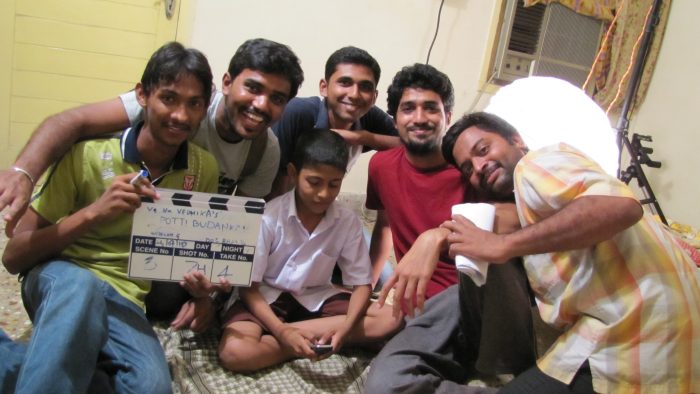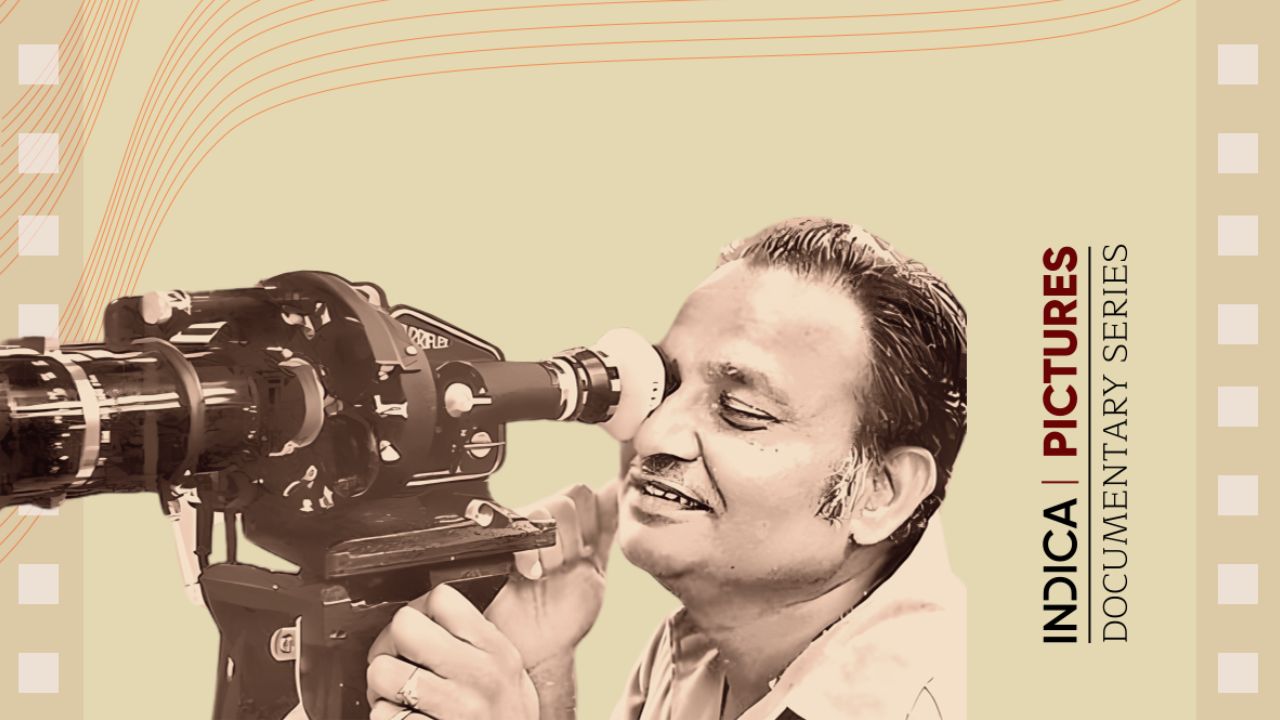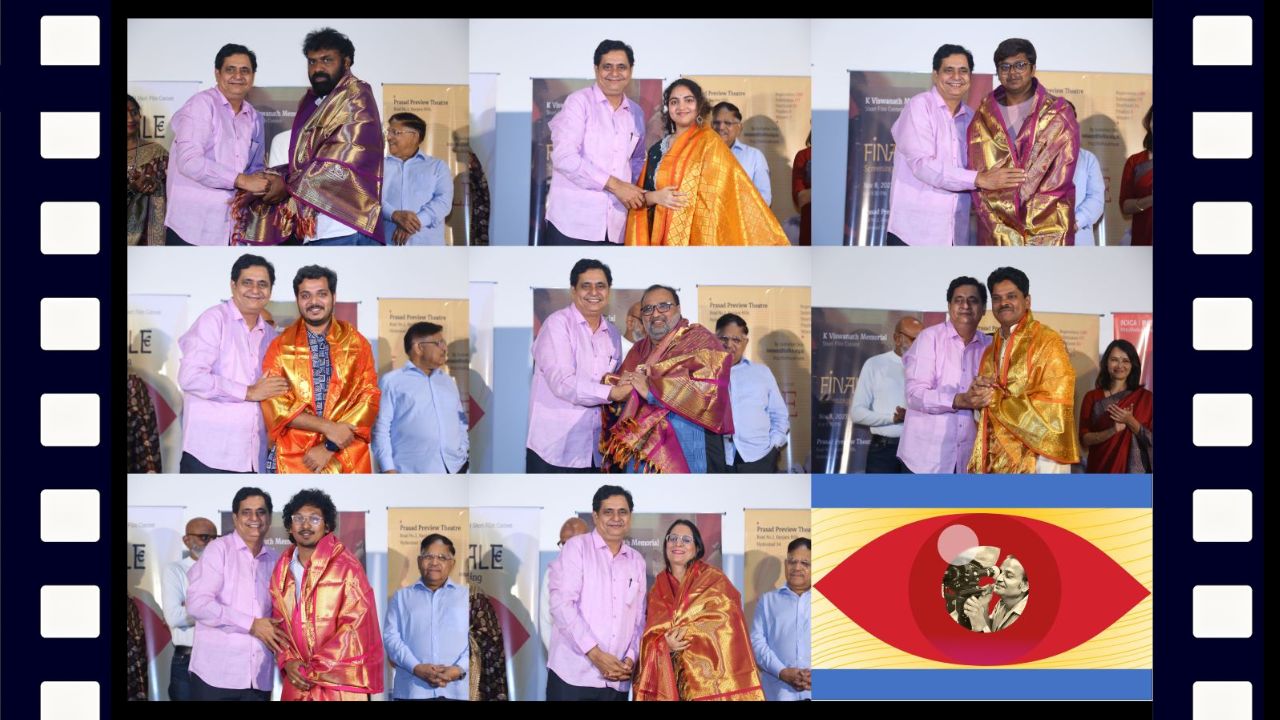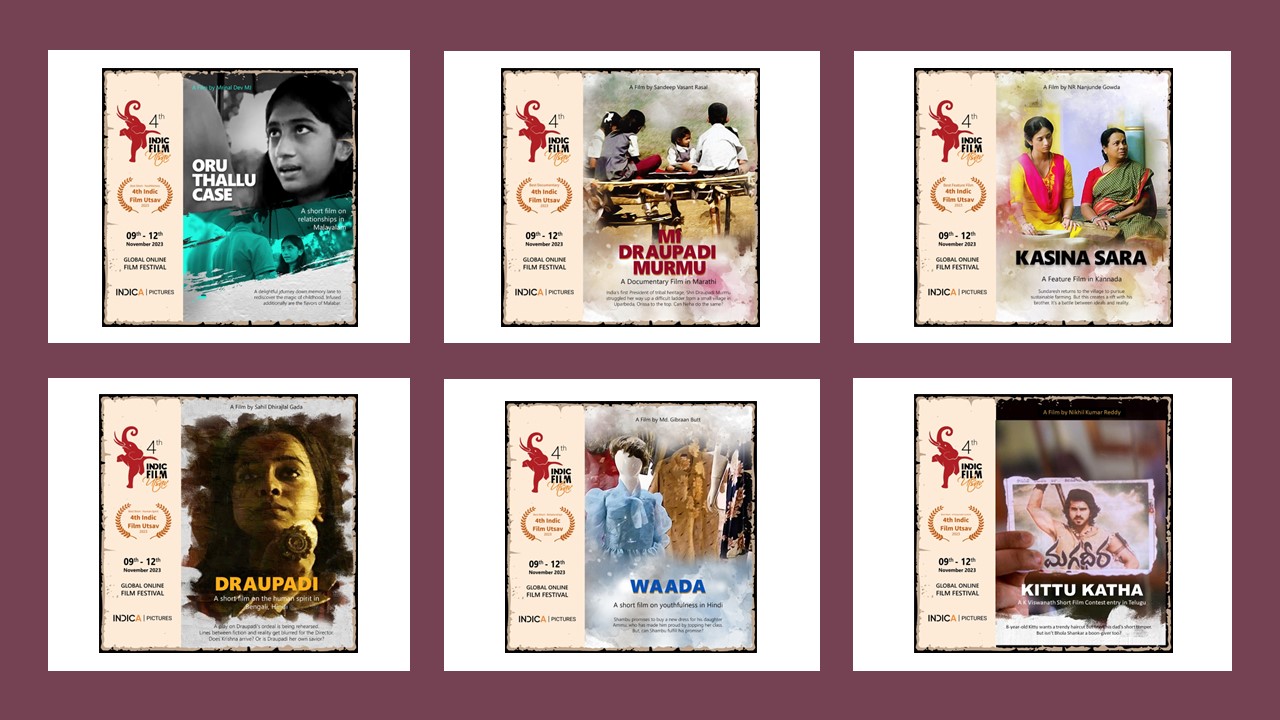Trivikram Gajulapalli, a Telugu filmmaker based in the US, ardently champions the cause of sharing authentic Indian stories with a global audience through crossover films. His upcoming short film is a testament to this passion. It captures a life-altering encounter between a Texan biker and a mysterious little girl, intricately woven with profound Indian philosophy. Discover more about his ideas.

What inspired you to become a short film maker, and how did you get started in the industry?
Creative writing is one of the things that flowed naturally for me, intertwined with my innate curiosity about life, relationships, and society. Filmmaking, therefore, emerged as a seamless extension of my being. I embarked on a self-guided journey into filmmaking, starting with my short films, and gradually transitioning to full-fledged feature films.
How does living in the US help or hinder your work?
Living in the US can undoubtedly pose challenges for those aspiring to venture into mainstream Telugu cinema. Thankfully, the landscape is evolving, and opportunities are on the rise. With a decent portfolio and compelling story, production houses are increasingly open to creating films within the US. We can take it a step further by creating quality crossover films for global audiences, and this is where my passion lies.

Can you tell us about the themes and subjects you explore in your Telugu films?
Diverse stories, varied genres, yet a singular theme: "inspiration". I choose a conflict and the subject could be about human relationships, social issues, inner growth or Dharma, craft a compelling story around it and try to tell it in a way that resonates with a broad audience.
Telugu cinema has a rich history. How do you see your work contributing to or diverging from traditional Telugu filmmaking?
As previously mentioned, my interest lies in bringing our authentic stories to global audiences, which in turn expands the audience base not only for Telugu cinema but also for Indian films as a whole. Also, it's important to acknowledge that I am a total outsider to the Telugu film industry in several aspects. Sometimes, this enables me to approach things differently.
What are the challenges specific to creating non-commercial films in Telugu, and how do you overcome them?
Regardless of how unconventional our films may be, enhancing the commercial viability remains crucial. Otherwise, it risks remaining merely a hobby. Spreading the word about the film is the biggest challenge as per me and I believe great promotional material and social media are the solutions.

What is your approach to casting and working with actors in your films? Could you describe it with reference to Manasu?
I look for actors who are both talented and disciplined. I discuss the characterization in great detail with them and eagerly wait to see how they own it. I love it when my actors know their dialogue by heart. No prompting on sets even if they are non-telugu and so far I’m successful :)
Regarding "Manasu," the moment I met Vankayala Satyanarayana garu, I was delighted to have found my lead actor. All of my actors have undergone extensive dialogue rehearsals. Despite their age, both senior actors managed rigorous schedules, including long days and nights. That’s partly because they saw the hard work we were putting in. They have never let their experience intimidate me. It was a very satisfying project for everyone involved.
Short films often have limited budgets. What strategies do you use to make the most of your resources while maintaining quality?
I have self funded all my projects including my feature film. Lessons I learnt about budgeting are , fix a budget whatever you think is appropriate and stick to it. Spend on things that directly impact the visual presentation, while reducing off-screen costs. Also make the payments promptly.

How do you think the digital era has impacted the distribution and viewership of Telugu films?
The foundation for the pan-Indian success of Telugu films and actors was actually laid on Youtube, a free platform, with the dubbing of their previous movies into various Indian languages. I’m a big fan of the democratizing effects that technology brings. As for distribution, OTTs are certainly reshaping the landscape. However, with the proliferation of platforms and content, we might need to explore fresh distribution avenues, particularly for smaller players.
What role does cultural or regional identity play in your short films, and how do you balance it with universal themes? Especially in your film Upshot and your next project.
My goal is to tell authentic stories so local culture plays a big role in my movies. It impacts the language, costumes, situations, emotions, everything. In projects like "Upshot," "Manasu," and my upcoming script, I delve into the protagonist's internal conflict. While they may appear rooted in local settings, their essence lies in universal themes. It’s just the matter of taking them to a global audience.
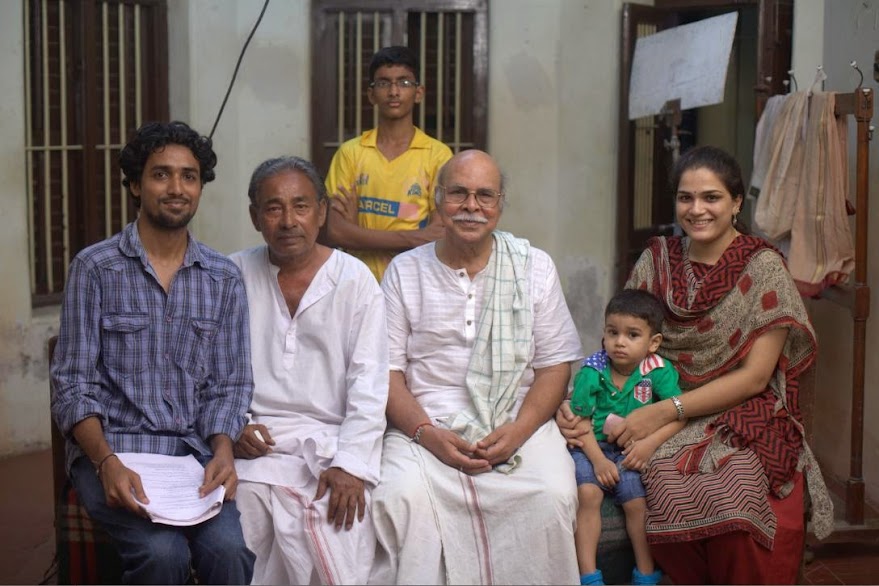
Can you discuss any upcoming projects or ideas you have for future Telugu short films?
I've written a couple of intriguing feature film scripts – one set against the backdrop of a temple (in Telugu) and the other a crime investigation (in English), loosely inspired by the attacks on the Indian community in the USA during the 1980s. Yet, my upcoming project will be a short film, focusing on the life altering encounter between a Texan biker and a mysterious little girl. This story is intricately woven with Indian philosophy, promising a captivating narrative.
As a short film maker, what message or emotions do you hope your audience takes away from your work?
I hope to inspire them to do better in their lives.
How do you market and promote your Telugu short films to reach a wider audience?
I provide the much required initial momentum, primarily through social media and YouTube, to reach the intended audience. Beyond that, the content must stand on its own merits. My short films serve as my portfolio, so I haven't focused on a revenue strategy for them.

What role do you think short films play in the broader landscape of Telugu cinema and storytelling?
Shortfilms started off as fun projects, later served as portfolios, pilot projects, platform for experimentation and alternate revenue models. They are now taking newer forms like Anthologies. Given the audience's shrinking attention span, the significance of short films is bound to grow further. They will be all the above and more.

Finally, can you share a memorable behind-the-scenes story or anecdote from one of your short film productions?
Many of my projects draw inspiration from real-life incidents; sometimes, a single visual is all it takes for the story to unfold. One day, as I was commuting to my office in Chennai, I witnessed a very elderly man praying in front of a standalone Vinayaka temple by the roadside. By the time I reached my office, the story for "Manasu" was fully formed, almost as if it were being dictated to me. It’s truly thrilling when creativity flows so naturally. Isn’t it?


